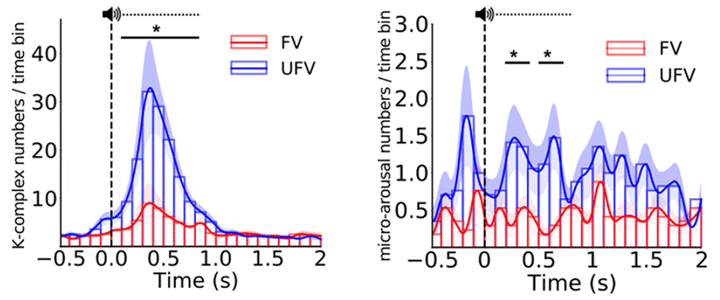
New research indicates that the brain continues to process and respond selectively to stimuli during sleep, particularly favoring unfamiliar voices through distinct brain wave activities known as K-complexes, which facilitate a state of alertness while maintaining sleep.
A good night’s sleep is not as simple as it appears. While you snooze, your brain continues to monitor the environment, balancing the need to protect sleep with the need to wake up. One example of how the brain accomplishes this is by selectively responding to unfamiliar voices over familiar ones, according to new research published in JNeurosci.
Researchers at the University of Salzburg measured the brain activity of sleeping adults in response to familiar and unfamiliar voices. Unfamiliar voices elicited more K-complexes, a type of brain wave linked to sensory perturbances during sleep, compared to familiar voices. While familiar voices can also trigger K-complexes, only those triggered by unfamiliar voices are accompanied by large-scale changes in brain activity linked to sensory processing.

Brain responses to the unfamiliar voice occurred less often as the night went on and the voice became more familiar, indicating the brain may still be able to learn during sleep. These results suggest K-complexes allow the brain to enter a “sentinel processing mode,” where the brain stays asleep but retains the ability to respond to relevant stimuli.
Reference: “The brain selectively tunes to unfamiliar voices during sleep” by Mohamed S. Ameen, Dominik PJ Heib, Christine Blume and Manuel Schabus, 17 January 2022, JNeurosci.
DOI: 10.1523/JNEUROSCI.2524-20.2021
Never miss a breakthrough: Join the SciTechDaily newsletter.